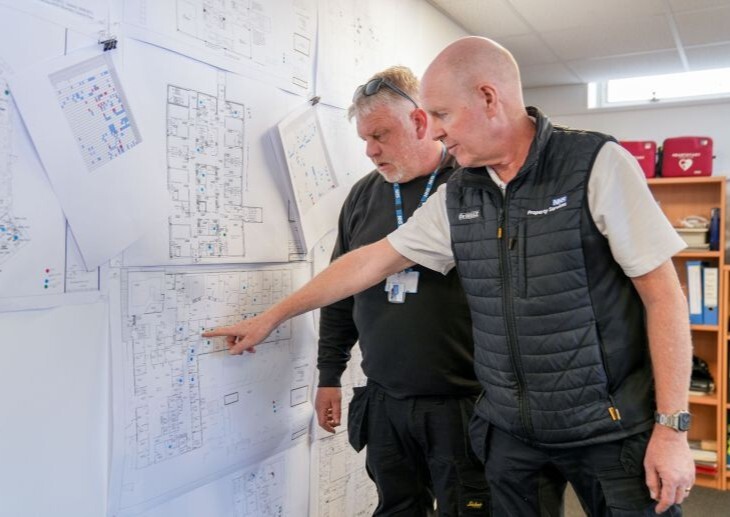As we head towards the first anniversary of the formal set up of integrated care boards (ICBs), Dr Tim Wilson and Ayesha Janjua from NHS Arden & GEM CSU’s health and care transformation team look at a series of examples where stewardship is enabling integrated care systems (ICSs) make well-informed, system-wide changes across clinical pathways
The Health and Care Bill 2022 includes a legal duty for decision-makers across NHS bodies to collectively consider the impact of their decisions on increasing the health and wellbeing of everyone and the quality of healthcare for the population they serve, as well as the sustainable and efficient use of NHS resources. In achieving this they must be able to work successfully together with wider ICS partners and be prepared to challenge some of the traditional ways in which care is delivered and resourced to achieve better outcomes for their populations.
This doesn’t happen automatically. Bringing together different organisations, management structures and budgets inevitably creates tensions. This requires a shift in mindset, culture and skills which, with the right investment, can enable the relationships and understanding needed for long term, sustainable partnership working.
Stewardship is essentially about being responsible stewards or navigators of resources, recognising and incorporating the collaborative working skills needed for success. It is population-focused, rather than organisation or condition-led, and starts with identifying population segments based on similar needs and bringing together stakeholders, including patients, to consider the best use of resources to achieve the best outcomes for that population.

Copyright: Arden & GEM 2023
The intention is not simply to improve clinical outputs and efficiencies. This approach measures outcomes rather than outputs, incorporating patient-reported outcomes measures (PROMs) which pick up broader issues such as the amount of days disrupted by care, being free from pain, or how empowered they feel, in addition to more traditional clinical and financial measures.
NHS Arden & GEM has been supporting many ICSs in achieving these aims, using a combination of the Oxford value and stewardship programme and the Socio-technical allocation of resources (STAR) process. These programmes help to bridge the differences in approach and decision-making across system partners and build trust in a collaborative approach to improve outcomes for patients.
Developing coordinated care pathways in Mid and South Essex
Mid and South Essex ICS has been using value-based stewardship to determine appropriate care pathways for patients across six key areas:
- Ageing well
- Cardiac care
- Stroke care
- Urgent and emergency care
- Respiratory care
- Cancer care.
Using a combination of face to face workshops and online training, each group has developed a deeper understanding of the Triple Aim and four purposes of an ICS as a group and individually, as well as the population segment and resource availability for their service area. Mapping out stakeholder networks and exploring how to operate, define success, and make and measure resource decisions as a group, has enabled each of the stewardship teams to agree their scope, population, resources, outcomes and metrics. This has provided the understanding to deliver truly integrated care within their system, with a clear framework outlining the data and perspectives needed for robust decision-making, including input from health and care professionals (both clinical and non-clinical), and patients across all localities.
Stroke pathway
The Mid and South Essex ICS stroke care group have already taken this a stage further to better understand which interventions are high value and which were delivering few or no benefits to help determine future use of resources. Arden & GEM introduced the team to the STAR process, developed by The Health Foundation and the London School of Economics, that combines technical value-for-money analysis with stakeholder engagement. Members of the stroke care stewardship group joined patients in workshops to review stroke pathway interventions across prevention, acute and recovery, resulting in options for further investment or disinvestment. This was supported with a review of economic cost-effectiveness assessments which has given the ICS the information and process needed to improve resource allocation. By bringing stakeholders together to collaboratively identify, investigate, discuss and categorise interventions, the stroke care team has been able to make confident, value-based decisions to ultimately improve outcomes for patients.
Midlands Heart Failure programme
The Midlands Cardiac Network, part of the Cardiac Pathway Improvement Programme (CPIP), exists to improve outcomes for people with heart failure. NHS England Midlands region commissioned support for the Midlands Cardiac Network in adopting a value and stewardship approach in their decision-making around the heart failure pathway and associated intervention across Derbyshire ICS and Leicester, Leicestershire and Rutland (LLR) ICS. Key to this was helping the ICSs to think, design, work and lead in populations, and to optimise personal value for patients in delivering change.
The Network identified heart failure ‘stewards’, with a responsibility for resource allocation including frontline clinicians from primary, acute and community care, and finance leads from Derbyshire and LLR. The stewards were brought together to consider the population segments they serve and how they relate to other segments, the resources they have and the culture and leadership skills needed to enable resource decisions as a group.
Derbyshire and LLR were supported to map all the heart failure interventions, including the activity and cost of each intervention, and the quality adjusted life years that NICE had attributed to these interventions where available. Both ICSs have used the collaborative working programme to define a series of improvement projects based on a clearer understanding of the interventions that deliver most value to their patient populations.
These programmes provide a snapshot of some of the work going on around the country to enhance integrated care. Although the programmes are still at a relatively early stage, adopting a stewardship approach has helped these systems develop solid foundations for collaborative working long term. Well defined models such as STAR and value-based stewardship give ICSs a reliable, independent process to objectively guide and support what can be challenging discussions as systems look to move from organisationally focused ways of working towards broader population needs-driven decision-making and resource allocation.






